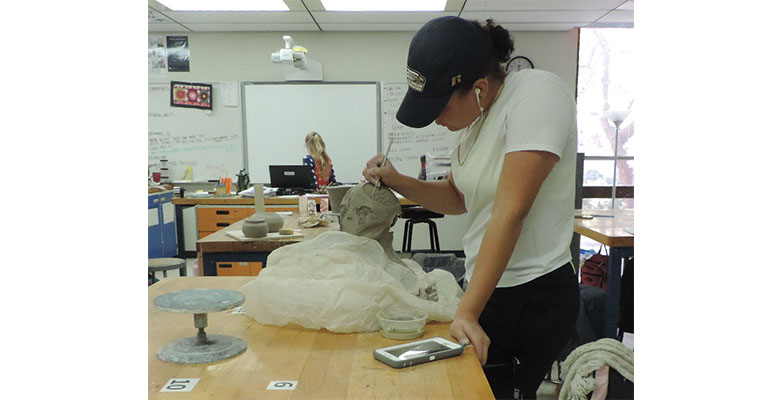UMSL Advanced Credit Program Allows Students to Earn College Credit In High School

If you had the opportunity to earn college credit while taking your regular courses, would take it? North has been partners with the University of Missouri-St. Louis (UMSL), Missouri Baptist, Missouri University S & T, and St. Louis Community College for years to offer this exact option for students who want to get a head start in their college careers.
“This has been a program for as long as I’ve been an administrator, so for more than 20 years. It’s been a long-standing program, but in the last 5 to 8 years [North] has really tried to focus on creating additional opportunities for kids to earn advanced college credit in high school,” said principal Jenny Marquart.
According to UMSL’s website, the Advanced Credit Program (ACP) is a dual credit program that offers “high school students […]the opportunity to earn college credits and become familiar with the college experience while still in a high school setting. College credits earned through the ACP are accepted at all of Missouri’s public colleges and universities and many other institutions across the country.”
For classes to be offered to students for college credit, the process first starts with the teachers who will be teaching the courses. Any teacher who wants to teach advanced courses for college credit must have their master’s, or be at least half way through a program to obtain their master’s, in their content field. Once teachers obtain the necessary credentials, they are then equipped to teach their course for dual credit eligibility.
“I decided to go back for a second master’s at Webster to get qualified to teach it for college credit. The following year, when I got my credentials, I started offering Calculus. Then after that, Ms. Goetz finished her master’s, so she offered Pre-Calculus and it spiraled into more teachers [in the department] start become qualified,” said math teacher Julie Parks.
In addition to having math courses available for dual credit, Parkway North also dual credit in science courses, English courses, art courses business courses, engineering/computer science courses, and FACS courses.
While the idea of taking a college level class that counts toward one’s college transcript can be intimidating, there are great benefits to the program. One being that the content taught is the same, but there is more time to learn it. For example, with languages students at North are learning content in one year that would typically taught for one semester in a college setting. Because the content is “spread out more, [the work load] isn’t as taxing and difficult,” said Spanish teacher Dawn Newport.
The program also allows for some freedom and flexibility as to what courses students want to take once they get to the university of their choosing.
“I applied for dual credit in order to get some of my college courses out of the way. For me, I have always been a science person. By taking dual credit courses, [I am able to get credit now] to ensure that I won’t have to take them again later. Where many college students are forced to take classes they are uninterested in, or numerous electives, I will be able to use these classes to prevent wasting my time in college. This also means that I will be able to focus more on the courses I am interested in, and those that will benefit my major,” said senior Morgan Jansson, who is taking Spanish, Calculus, and Masterpieces for dual credit.
Another potential benefit to the program is cost. According to UMSL’s website, the ACP “is about one-fifth of the cost for regular undergraduate courses on campus. Advanced Credit Program courses cost $64 per credit hour. A three-credit course with the ACP costs $192, while a three-credit hour course would cost approximately $1,000 for an undergraduate student to take on campus.”
Despite the benefits, some students are reluctant to take the classes for fear of feeling overwhelmed or not doing well.
One possible drawback to taking an AP course is getting a lower grade than taking a general class. “Some people may not want a C on their college transcript. But I still think that having taken college level courses in high school exposes you to a level of learning that’s going to help you to be better in course in college,” said Marquart.
Although Fall registration is for the Advanced Credit Program has passed, the Spring registration is open from Jan. 1 to Feb. 2.
by Roshae Hemmings, assistant editor-in-chief